Artificial Intelligence in Healthcare
ADHRI aims to deploy AI responsibly—to augment clinicians and enhance diagnostics, surveillance, and hospital workflows.
Artificial intelligence (AI) presents immense opportunities to enhance access, quality, and efficiency of healthcare delivery in resource-constrained environments across Africa. As pioneers of digital innovation, the African Digital Health Research Institute (ADHRI) aims to responsibly deploy AI technologies in the following ways:
- Develop localized AI-supported diagnostic tools to analyze medical scans, detect anomalies, and augment clinician diagnostics. This would improve early detection and accuracy of diagnostics.
- Leverage machine learning on large anonymized datasets to derive insights and predict outbreaks. This would strengthen public health surveillance and epidemic preparedness.
- Build virtual assistants and chatbots to support telemedicine, provide health education, and enable self-triage - especially in rural communities with health worker shortages.
- Use AI algorithms to optimize complex hospital workflows related to staff scheduling, patient flow, bed allocation, and equipment maintenance. This improves operational efficiency.
- Apply AI to analyze population health data and healthcare supply chains. Advanced forecasting can boost resource planning and minimize waste.
- Assist radiologists and pathologists in analyzing diagnostic images to improve detection rates and provide quality control.
While adopting AI, ADHRI will prioritize security, transparency, and user trust. AI deployment will be gradual, evidence-based, and designed to augment (not replace) healthcare professionals. Overall, ADHRI sees AI as a pivotal emerging technology to assist overburdened health systems across Africa.
